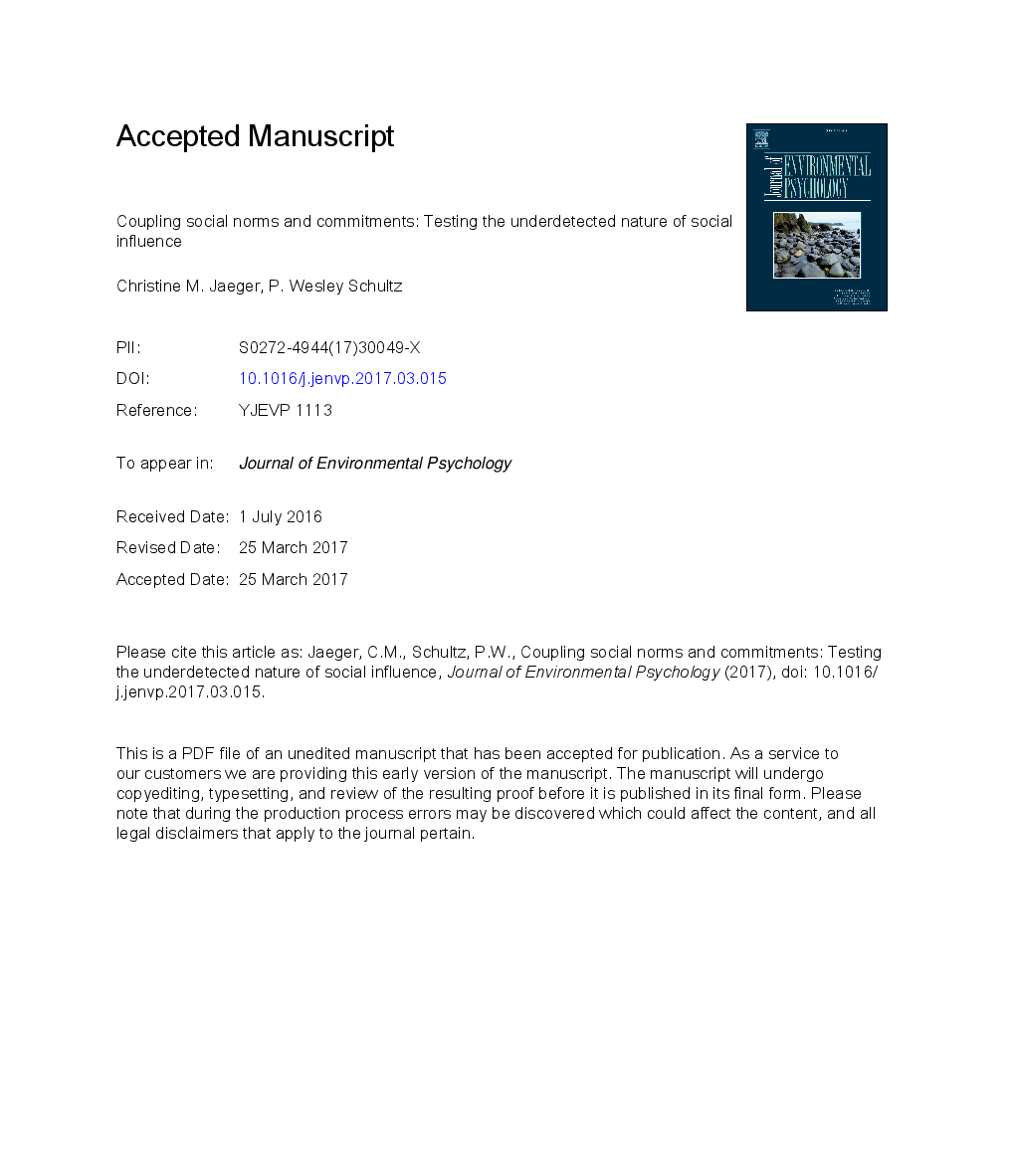ترجمه فارسی عنوان مقاله
تطبیق هنجارها و تعهدات اجتماعی: تست ماهیت تحت تأثیر اجتماعی
عنوان انگلیسی
Coupling social norms and commitments: Testing the underdetected nature of social influence
| کد مقاله | سال انتشار | تعداد صفحات مقاله انگلیسی |
|---|---|---|
| 135421 | 2017 | 35 صفحه PDF |
منبع

Publisher : Elsevier - Science Direct (الزویر - ساینس دایرکت)
Journal : Journal of Environmental Psychology, Volume 51, August 2017, Pages 199-208
ترجمه کلمات کلیدی
هنجارهای اجتماعی، تعهد سازی، حفاظت از آب،
کلمات کلیدی انگلیسی
Social norms; Commitment-making; Water conservation;
ترجمه چکیده
اطلاعات هنجاری نشان دهنده موفقیت در ترویج رفتارهای محیطی است. تحقیقات نشان می دهد که نفوذ آن تا حد زیادی تحت تأثیر قرار گرفته است و دریافت کنندگان آن ها به طور گسترده ای از تاثیر آن کاسته اند. در نتیجه، تغییرات رفتاری ناشی از اطلاعات هنجاری باید درک شده با انگیزه ذاتی باشد. این فرضیه با روش تعهدی مورد آزمایش قرار گرفت، جایی که تعهدات انگیزشی ذاتی باعث ایجاد تغییرات رفتاری نسبتا طولانی شده و تعهدات بیرونی انگیزه، باعث ایجاد تغییرات نسبتا کوتاه مدت می شود. در یک آزمایش میدانی، 8876 خانوار تحت محدودیت های خشکسالی به طور تصادفی برای دریافت اطلاعات محدود، هشدار قوی یا اطلاعات هنجاری در ارتباط با پذیرش جامعه به محدودیت ها اعطا شد. خواسته های زیرزمینی خانوار در دو مورد اخیر به پیوستن به محدودیت های آب متعهد شده است. کاهش سریع برای افراد متعهد که هشدار یا اطلاعات هنجاری قوی را دریافت کردند، نشان داده شد، اما تنها متعهدانی که اطلاعات هنجاری دریافت می کردند، کاهش طولانی مدت مصرف آب را نشان می داد. این یافته ها ادعا می کند که طبیعت تحت تأثیر تأثیرات هنجاری، انگیزه ذاتی را ارتقا می بخشد.

